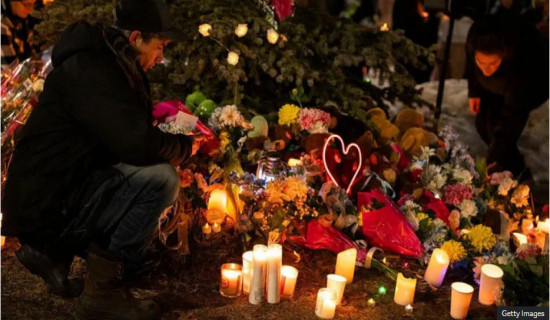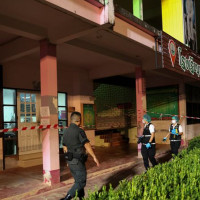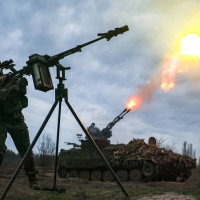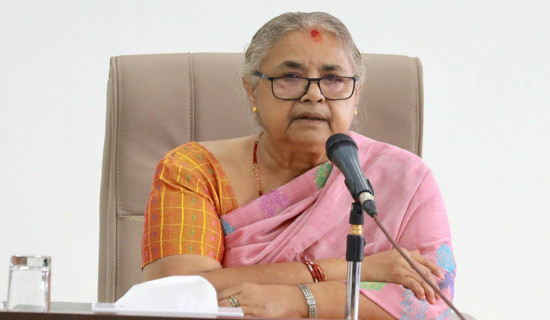- Friday, 13 February 2026
Mexico's cartel violence haunts civilians
Huitzilac, Mexico, May 18:Tailed by trucks of heavily armed soldiers, four caskets floated on a sea of hundreds of mourners. Neighbours peered nervously from their homes as the crowd pushed past shuttered businesses, empty streets and political campaign posters plastering the small Mexican town of Huitzilac.
Days earlier, armed men in two cars sprayed a nearby shop with bullets, claiming the lives of eight men who locals say were sipping beers after a soccer match. Now, fear paints the day-to-day lives of residents who say the town is trapped unwillingly in the middle of a firelight between warring mafias.
As Mexico’s expanding slate of criminal groups see June 2 elections as an opportunity to seize power, they have picked off more than a hundred hopefuls for local office and warred for turf, terrorizing local communities like Huitzilac.
Cartel violence is nothing new to Mexico, but bloodshed in the Latin American nation has spiked in the run-up to the elections, with April marking the most lethal month this year, government data shows.
But candidates are not the only ones at risk. Even before the election it was clear that outgoing President Andrés Manuel López Obrador had done little more than stabilize Mexico's high level of violence, despite pledges to ease cartel warfare.
Despite disbanding a corrupt Federal Police and replacing it with a 130,000-strong National Guard, focusing on social ills driving cartel recruitment, and declining to pursue cartel leaders in many cases, killings in April reached nearly the same historic high as when López Obrador first took office in 2018.
Cartels have expanded control in much of the country and raked in money — not just from drugs but from legal industries and migrant smuggling. They've also fought with more sophisticated tools like bomb-dropping drones and improvised explosive devices.
So far, those vying to be Mexico’s next president have only offered proposals that amount to more of the same.
“Criminal violence has become much more difficult to resolve today than six years ago. … You can’t expect a quick fix to the situation, it’s too deeply ingrained,” said Falko Ernst, a senior Mexico analyst for International Crisis Group. “It is going to be even harder to unwind now” than it was when López Obrador took power.
Saturday’s mass shooting in Huitzilac came after waves of other attacks, according to local media and residents. In recent weeks alone, local media reported that three people were slain on the highway running out of town, three more were shot outside a restaurant in a neighbouring municipality, and in the nearby tourist city of Cuernavaca, hit men reportedly killed a patient in a private hospital.
Josué Meza Cuevas, Huitzilac’s municipal secretary general, said it was not clear what provoked the bloodshed, but many in the town attribute it to a turf war between the Familia Michoacana, La Unión de Morelos and other cartels, which has made the state of Morelos one of Mexico's most violent.
Huitzilac fell eerily silent as businesses shuttered and few dared to venture into the streets Tuesday. Schools cancelled classes “until further notice” amid requests from fearful parents.
Anahi, a long-time resident of the town, and her teenage children were among many families that hunkered down in their homes, too scared to wander out in the streets.
While Cuevas said “nothing like this has ever happened,” Anahi said she has long felt death breathing down her neck.
Located little more than an hour from the hipster bars and backpacker hostels in Mexico City, Huitzilac made a name as a town just outside the law's reach. (AP)
















